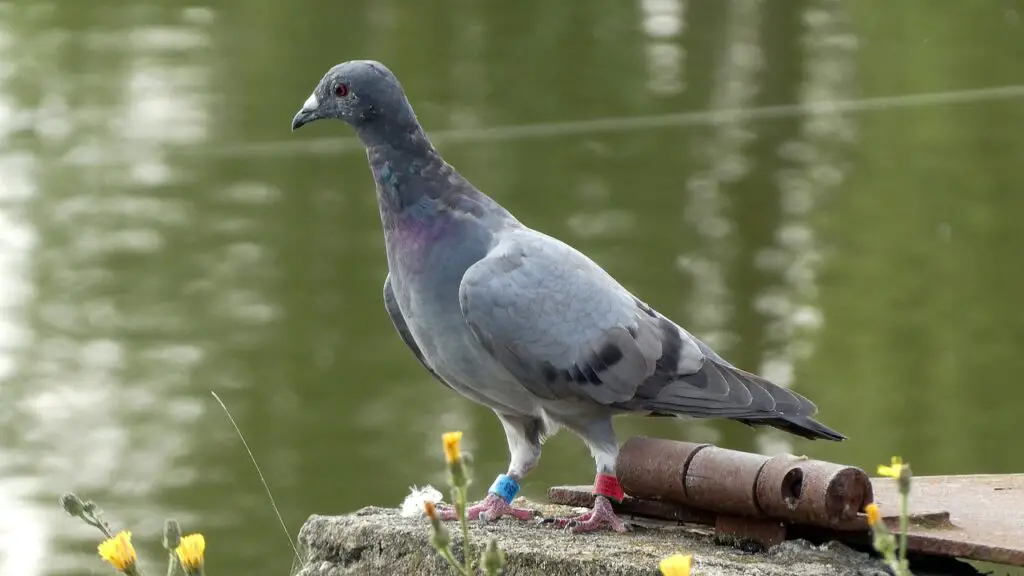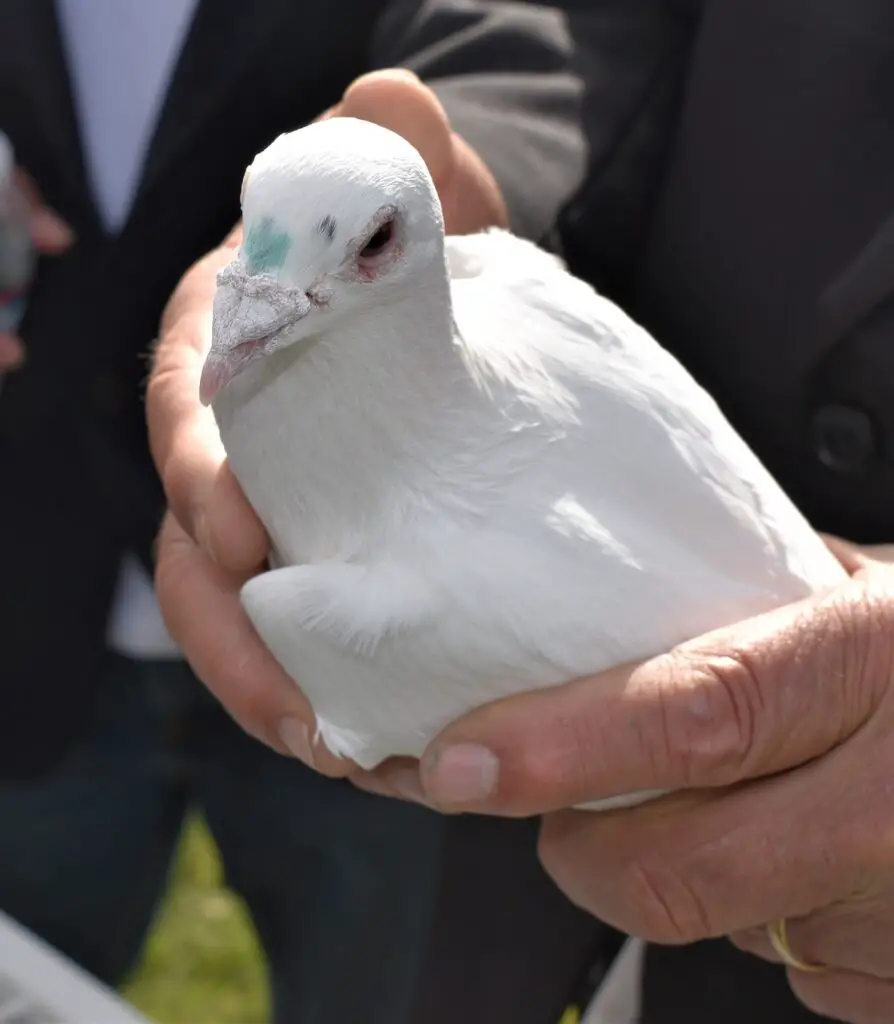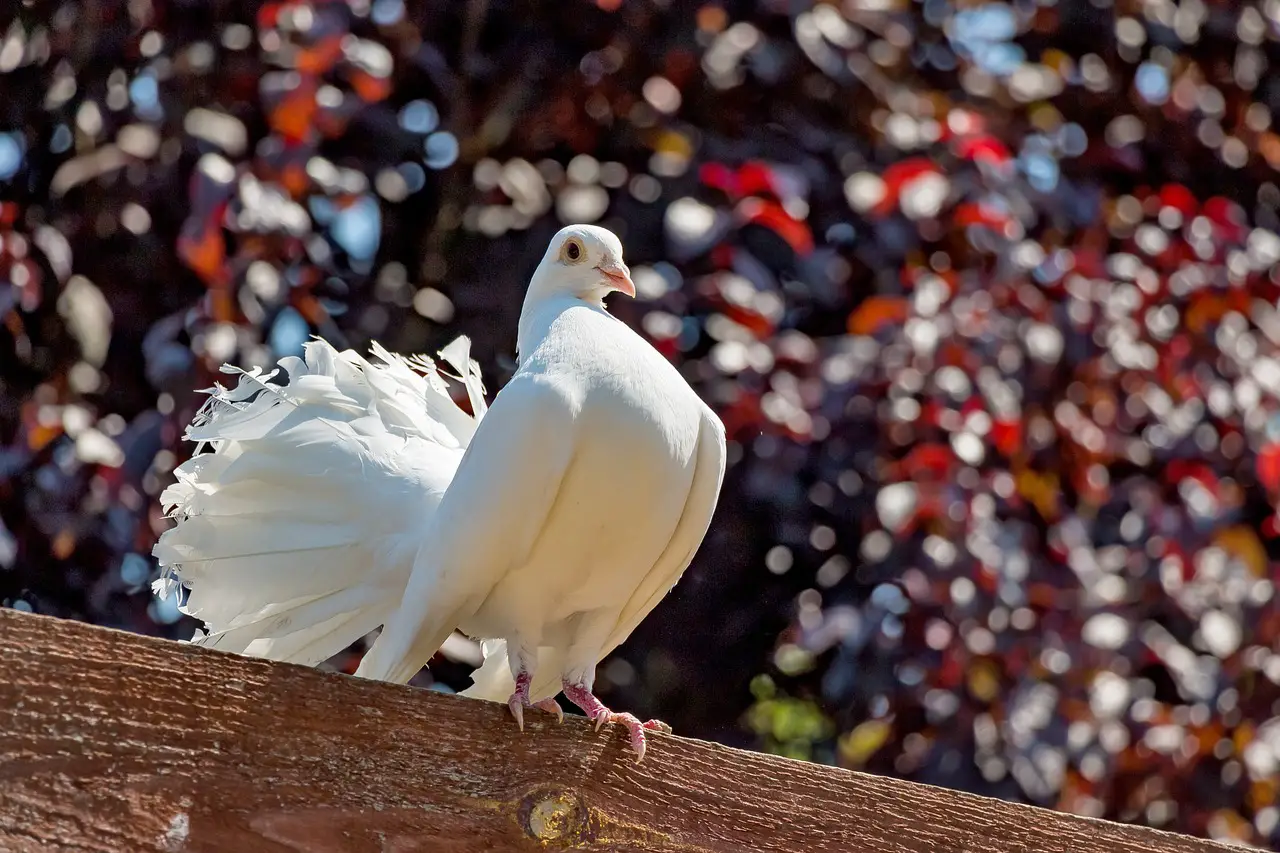When you think of keeping pets, dogs, cats, or even fish might come to mind. However, there’s another animal that can make for an extraordinary and surprisingly affectionate companion: homing pigeons. While pigeons are often associated with urban environments and city squares, homing pigeons have a fascinating history and unique qualities that make them a rewarding choice as pets.
In this guide, we’ll explore the world of homing pigeons as pets, from their history to their care requirements and the joys of having them as feathered friends.
You may also want to read about the best pigeon food.
A Brief History of Homing Pigeons
Homing pigeons, also known as homing or messenger pigeons, have a history dating back thousands of years. They were first domesticated by humans over 5,000 years ago, primarily for their remarkable ability to navigate and return to their home loft from long distances. Here are some key points in their history:

- Ancient Messengers: Throughout history, homing pigeons were used as messengers. They played crucial roles in delivering messages during times of war and were used by various civilizations, including the ancient Greeks, Persians, and Egyptians.
- World Wars: Homing pigeons played a pivotal role in both World War I and World War II. They were used to transmit vital messages behind enemy lines when electronic communication was unreliable.
- Sports and Hobbies: Even outside of wartime, homing pigeons have been valued as a sport. Pigeon racing involves releasing pigeons from a distant location and timing how quickly they return to their home loft.
Why Keep Homing Pigeons as Pets?
Keeping homing pigeons as pets may not be as common as having cats or dogs, but it offers a unique and rewarding experience. Here are some reasons why you might consider homing pigeons as pets:
- Intelligence: Homing pigeons are known for their intelligence and problem-solving abilities. They can recognize their own reflection in mirrors and navigate long distances with incredible accuracy.
- Affectionate Companions: Contrary to popular belief, homing pigeons can be surprisingly affectionate and form strong bonds with their human caregivers. They can even be trained to come to you when called.
- Minimal Space Requirements: Pigeons don’t require large yards or living spaces. A small loft or coop is often sufficient for keeping a few pigeons.
- Quiet and Low-Maintenance: Pigeons are generally quiet birds, making them suitable for urban living. They also have low maintenance requirements compared to other pets.
- Unique Hobby: Keeping homing pigeons can be a unique and fascinating hobby. Breeding and racing pigeons can add an element of excitement to your life.
Starting Your Pigeon Adventure
If you’re ready to embark on the journey of keeping homing pigeons as pets, here are the essential steps to get started:
1. Research and Learn
Before bringing pigeons into your life, educate yourself about their care and behavior. Books, online resources, and joining pigeon enthusiast communities can provide valuable insights.
2. Build or Buy a Coop or Loft
You’ll need a safe and comfortable space for your pigeons to call home. You can build a coop or purchase a loft designed for pigeon keeping. Ensure it provides protection from predators and harsh weather.

3. Choose Your Pigeons
Select the type of pigeons you want to keep. Consider your goals, whether you’re interested in homing, racing, or simply having them as pets. There are various breeds to choose from, each with its unique characteristics.
4. Create a Comfortable Environment
Inside the coop or loft, provide nesting boxes, perches, and ample ventilation. Pigeons appreciate a clean and comfortable living space.
5. Proper Nutrition
Feed your pigeons a balanced diet. Commercial pigeon feed is available and can be supplemented with grains, seeds, and fresh vegetables. Ensure they have access to clean, fresh water at all times.
6. Socialization and Training
Spend time with your pigeons to build trust and establish a bond. Pigeons can be trained to return to their loft after flights and even to come when called.
7. Veterinary Care
Regular health check-ups are essential for keeping your pigeons healthy. Find a veterinarian experienced in avian care to assist with vaccinations, disease prevention, and addressing any health concerns.
The Joys of Pigeon Companionship
As you welcome homing pigeons into your life, you’ll discover the unique joys of their companionship:
1. Affectionate Bond
Pigeons are known to form strong bonds with their human caregivers. Over time, you’ll develop a special connection with your pigeons, and they may even seek out your company.
2. Tranquil Presence
Pigeons have a calm and peaceful demeanor that can have a soothing effect on your daily life. Watching their graceful movements and hearing their gentle cooing can be a therapeutic experience.
3. Fascinating Behavior
Pigeons exhibit a range of interesting behaviors, from courtship rituals to parenting and nest-building. Observing these behaviors can be both entertaining and educational.
4. A Unique Hobby
Raising pigeons can become a fulfilling and lifelong hobby. Breeding, training, and racing pigeons can add an exciting dimension to your leisure time.
Tips for Responsible Pigeon Ownership
As a responsible pigeon owner, it’s essential to ensure the well-being of your feathered friends:
- Regular Care: Maintain a consistent feeding and care routine. Provide clean water and nutritious food daily.
- Social Interaction: Spend time with your pigeons regularly. Gentle handling and positive interactions will strengthen your bond.
- Health Monitoring: Keep an eye on your pigeons’ health. Look for signs of illness, changes in behavior, or any unusual symptoms.
- Clean Living Space: Keep the coop or loft clean and well-ventilated. Regularly remove droppings and replace bedding.
- Protection from Predators: Ensure the safety of your pigeons by protecting them from potential predators like cats, raccoons, and birds of prey.
- Training: If you plan to train your pigeons for specific tasks or flights, do so with patience and positive reinforcement.
Conclusion
Raising homing pigeons as pets offers a unique and rewarding experience that combines the joys of companionship, a fascinating hobby, and the opportunity to learn about these intelligent and affectionate birds. While pigeons may not be as conventional as other pets, they bring their charm and tranquility into your life, creating an enriching and fulfilling journey for both you and your feathered friends.
So, if you’re looking for a pet that’s a little out of the ordinary but brings an abundance of joy, consider inviting homing pigeons into your home and heart.


